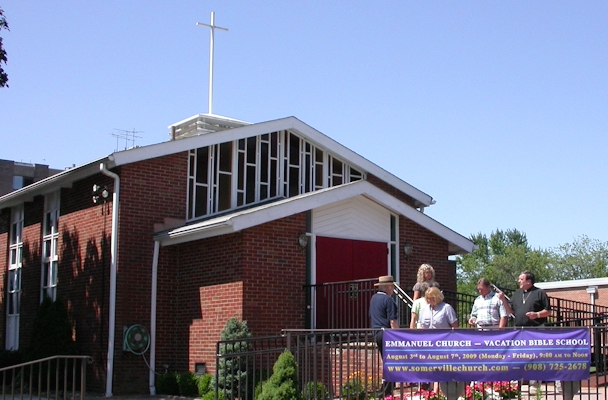

“To those who kill, we are Christians,” Francis also said. “Their blood is mixed,” Pope Francis said. “In some countries they kill Christians for wearing a cross or having a Bible and before they kill them they do not ask them whether they are Anglican, Lutheran, Catholic, or Orthodox.” “Today there is an ecumenism of blood,” Pope Francis told Italy’s La Stampa in 2013.

Though Pope Francis did not use the precise term in his remarks to the Church of Scotland’s Moderator on the day after the martyrdom, the “ecumenism of blood” had already become a major motif of his pontificate. “Their blood is one and the same,” Pope Francis said. It makes no difference whether they be Catholics, Orthodox, Copts or Protestants. “The blood of our Christian brothers and sisters,” Pope Francis told the Moderator of the Church of Scotland one day after the brutal murder of the Martyrs of Libya, “is a testimony which cries out to be heard. Pope Francis spoke – with great power of eloquence and repeatedly – of the martyrs’ heroism, calling it expressive of the deep unity in Christ that precedes and transcends institutional divisions, giving the world a fleeting glimpse of the indivisible oneness of the mystical body that is the Church. Coming at a time of tension in Egypt in the wake of protracted upheaval, the Martyrs of Libya united a nation and captured the not only the attention but the moral imagination of people everywhere. Video of the martyrs’ murder spurred outrage at the bloodthirsty and wanton destructiveness of IS, and briefly but powerfully focused the world’s attention on the plight of persecuted Christians in the Middle East and throughout the globe. “Their God is my God,” Ayariga said when the IS killers offered to let him live if he forswore Jesus Christ. Ayariga drew strength and inspiration from the great courage of his companions, who died with the name of Our Lord on their lips. The man from Ghana, named Matthew Ayariga, was either a Protestant or nominal Christian, or else unbaptized. The gruesome mass-murder of twenty Egyptian Coptic Orthodox Christians and one man from sub-Saharan Africa happened only eight years ago, at the high water mark of the brutal Islamic State’s brief and blood-soaked career of destruction and desolation. Two distinct but related reasons explain why Pope Francis’s extraordinary act is of great moment, one psychological and the other political.

UNITY CHURCH SOMERVILLE PROFESSIONAL
Francis’s announcement has captured the attention of the entire world – not only professional Christians of the chattering classes – and stirred frequently emotional discussion across the spectrum of opinion and discourse within the Catholic community and beyond it. Though not entirely without precedent – there is little utterly unexampled in the history of a two-thousand-year-old global institution – it would be gross understatement to characterize Pope Francis’s move on Thursday as a mere surprise. Almost immediately, shrines and other celebrations and commemorations of the victims as heroes of the faith sprang up in Catholic and other Orthodox Churches and Protestant communities around the world, including in Rome. The spiritual leader of the Coptic Orthodox Church, Pope Tawadros II of Alexandria, canonized the Martyrs of Libya in his Church only a week after their murder. The date for the optional liturgical commemoration of the Coptic Martyrs of Libya is February 15 th, the anniversary of their martyrdom at the hands of terrorists belonging to the so-called Islamic State. Pope Francis made history on Thursday, when he added to the Roman Martyrology the names of twenty-one Coptic Christians martyred in Libya in 2015, giving them a date on the Roman calendar of saints and allowing Catholics to honor them publicly in the Catholic liturgy.


 0 kommentar(er)
0 kommentar(er)
